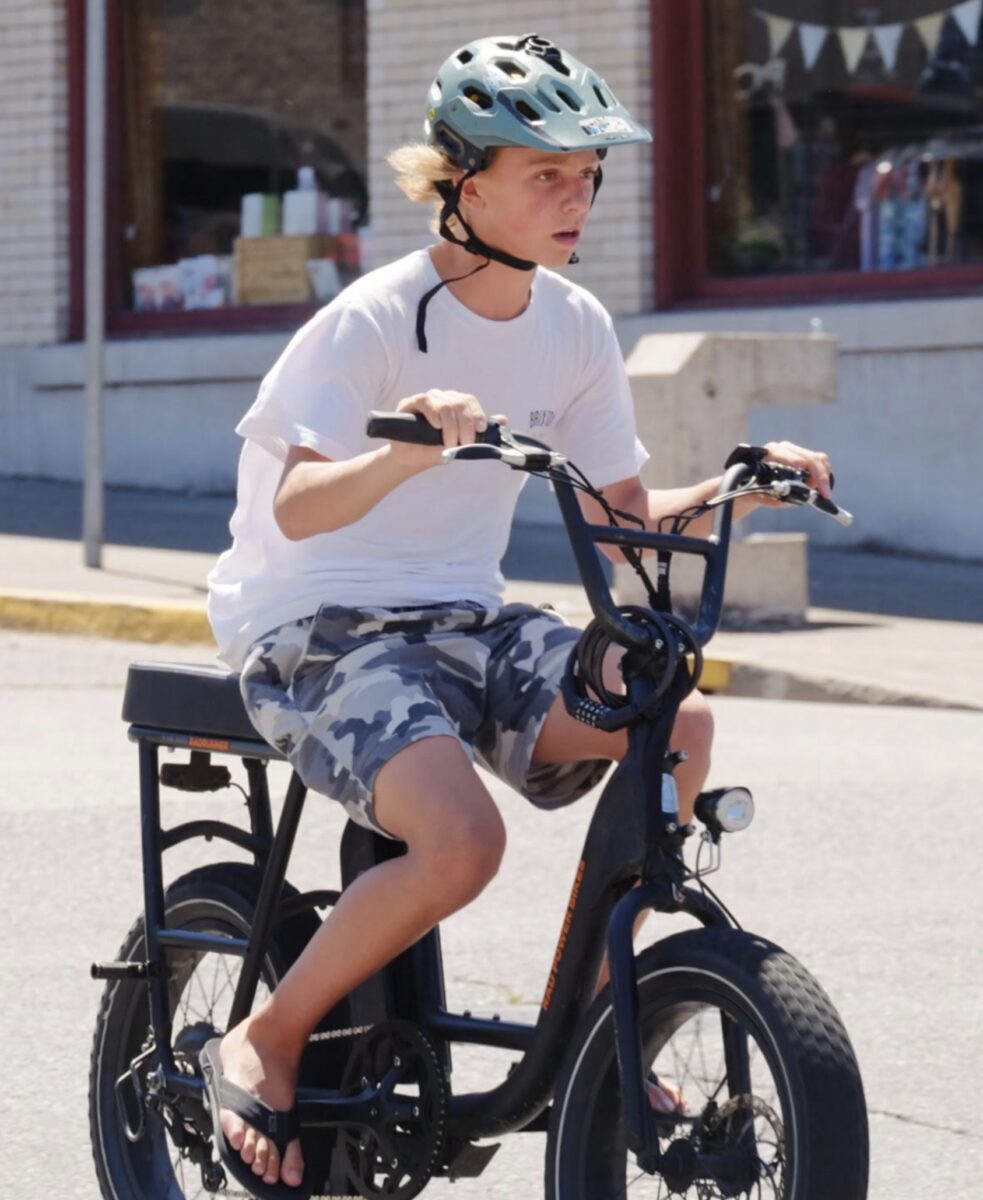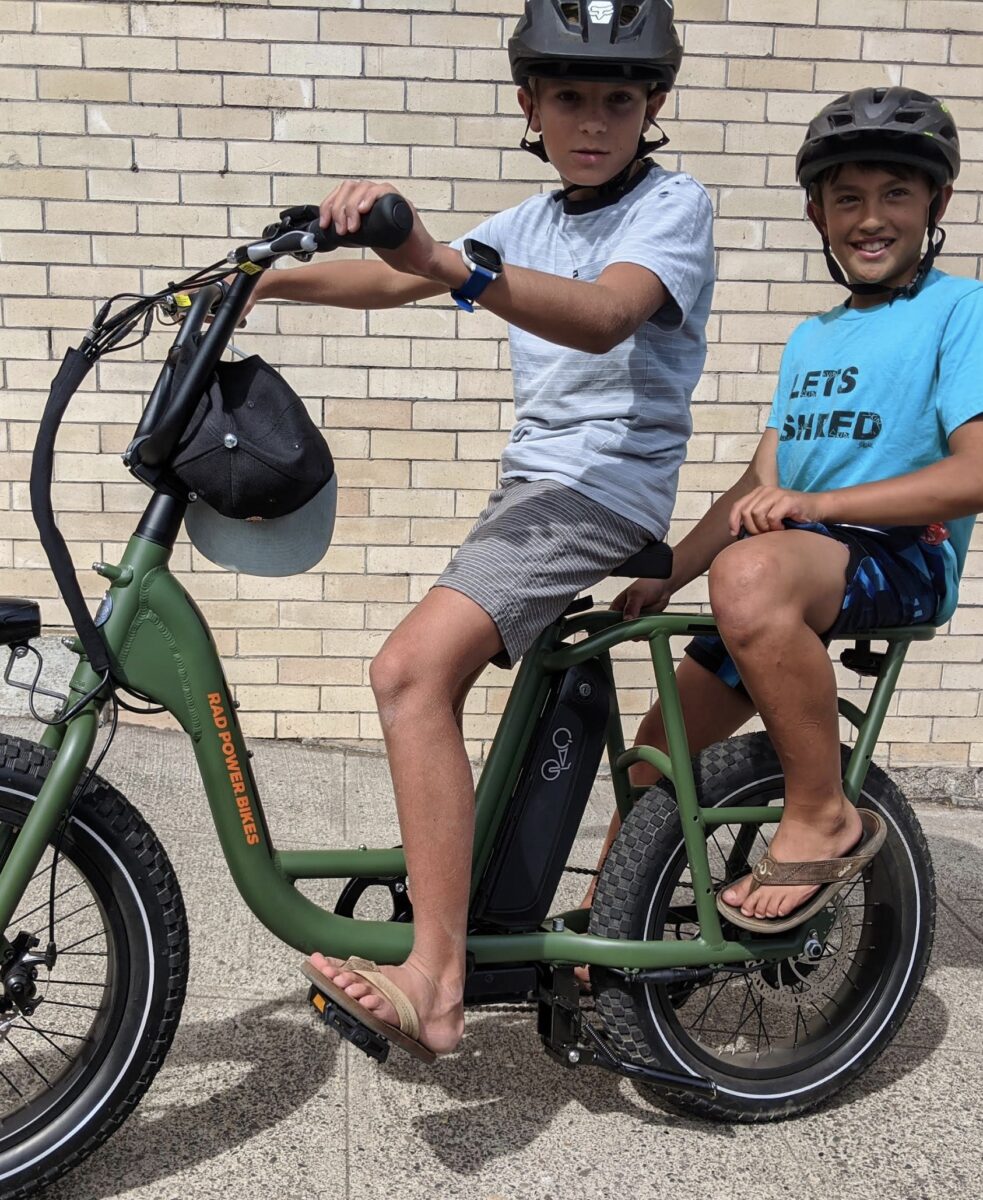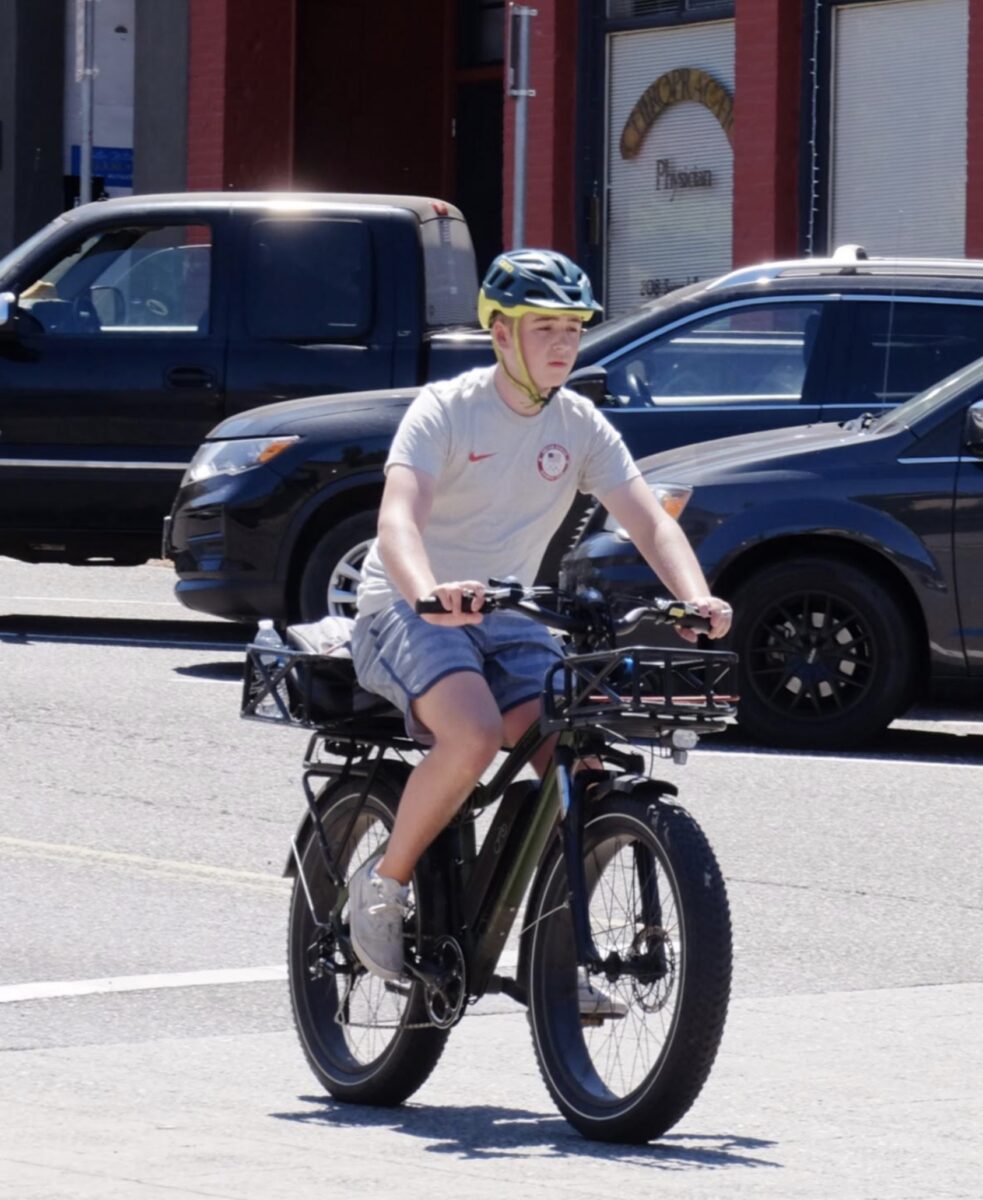


Tweens and Teens are embracing electric bikes for transportation, but it’s technically against the law.
By Hood River resident and cycling advocate Megan Ramey (@bikabout)
We are currently living through the next great transportation revolution. It may be difficult to see it while you’re in the midst of it, but the rapid development of the e-bike market – the development of the tech, the emergence of focused retailers, and finally widespread consumer adoption – is a market shift on the scale of the debut of the practical automobile a century ago.
Each of these major disruptions comes with promise, and with challenges.
From what I’ve seen, one of the most interesting new challenges with e-bikes are how teens and tweens have flocked to them. In the immediate sense, teens getting around town by e-bike instead of a car is a wonderful thing. Where we live in Hood River, Oregon, we see teens going to lacrosse practice, going to the waterfront to swim, going to school, and going to after-school jobs by e-bike every day. We lovingly call them “throttle kids” because they seem to prefer the Class 2 style bikes that can be powered via a throttle without any pedaling at all.
“All it’s going to take to have this conversation explode is a teen hitting a baby stroller or a senior citizen.”
Traditionally, all of those trips would’ve been in a car – either piloted by the teen, or their parents. I’m thrilled to see “one less car” each time these kids zoom by, and their parents will probably tell you how nice it is to get the time back from being a taxi driver. In the longer term, they represent a potential for a generation of kids to envision a life getting around in something other than single occupancy cars for short trips. A teen who grows up using an e-bike is much less likely to feel like an $800 monthly truck payment is 100% mandatory as an adult.
Now on to the challenges.
The short of it is that the legal system hasn’t yet caught up to the technology, so most people are just doing whatever feels right. Even in states like Oregon, where it’s illegal to ride an e-bike under 16 years old, there are no ordinances or fines for police to cite, making enforcement more or less impossible. In a practical sense, if teens are riding responsibly, there’s not actually a problem to “fix” here. But the teens who are handed an e-bike are not necessarily also trained how to ride in an urban environment, which means someone’s going to get hurt.
All it’s going to take to have this conversation explode is a teen hitting a baby stroller or a senior citizen, or just as bad, hitting a fixed object like a pole or parked car. Crashes like this unfortunately happen with non-electric bikes every year, but if it happens with someone who is under age riding an e-bike, the media frenzy would be harsh. We could see overly restrictive laws passed, police changing their enforcement stance, and a general public backlash that sets bike advocacy back decades. As always, it’s best to get ahead of the issue and create these laws in advance, and not in reaction to a tragedy.
In the long-term, Oregon’s e-bike-related laws should be modified to define the class system (we’re currently one of 15 states without the three class, tiered categorization system), as well as allow kids of all ages on e-bikes with some constraints. Luckily, we have a Washington law to copy-paste which allows kids and sidewalk biking for class 1 and 2 e-bikes.
For a shorter term solution, we need to educate our kids.
This fall, I’ll be coordinating an education and awareness campaign with the Hood River Valley School District and the Hood River Police, letting parents know about the existing law. The school district received the ODOT Safe Routes to School Education grant which funds a program manager at all eight schools. Through this program over the next two years, elementary and middle school students will learn how to bike and older students will learn empathy, etiquette and laws of walking and rolling for transportation. High schoolers will have the option to take an e-bike learners program and e-bike field trip. For any middle school students who pass a biking safety test and receive a “badge” for their bike , I would suggest cities adopt an ordinance to allow kids under 16 the privilege of lawfully riding an e-bike, which can be revoked.
Two weeks ago I had a meeting with Hood River Police Chief Neal Holste. He assured me his team will never pull over a suspected teen on an e-bike because officers want to be seen as allies and don’t want to cause trauma (and yes I’m aware he and I are both white and his assurances might not be as comforting to riders or parents of color). Chief Holste also acknowledged my fear that if anyone gets hurt (or worse) due to a teen on an e-bike, enforcement may get ratcheted up.
My daughter is 12 and rides our e-bike while we ride acoustic bikes. She can even pilot the heavy Urban Arrow cargo bike and loves the sense of accomplishment in hauling stuff that comes with it. She has been riding a bike for transportation since she was in kindergarten and I trust she will be ready to e-bike solo next year.
Parents, please spread the word to educate our e-biking teens and tweens so this amazing privilege continues.


